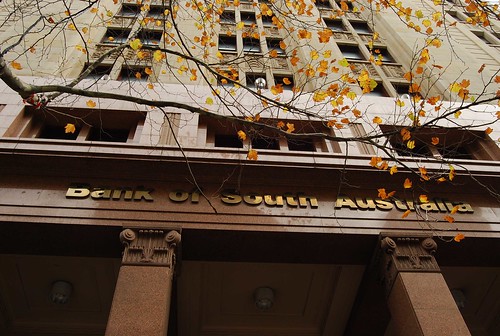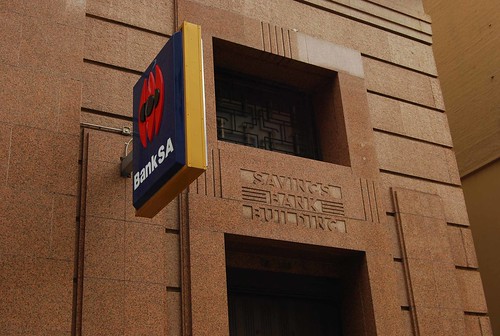The World on Paper
"[Individuals who break through by inventing a new paradigm are] almost always...either very young or very new to the field whose paradigm they change...These are the [men and women] who, being little committed to prior practice to the traditional rules of normal science, are particularly likely to see that those rules no longer define a playable game and to conceive another set that can replace them." - Thomas S Kuhn, The Structure of Scientific Revolution (1962)
Sunday, June 29, 2008
Monday, June 23, 2008
Adelaide's Art Deco
This morning I took part in a walking tour of art deco architectural highlights of Adelaide CBD hosted by the Art Deco Society - Adelaide Chapter.
The tour revealed a number of architectural gems tucked away in the city's side streets. Notable and my favourites are the Laubman and Pank Optometrists and Gritti Palace, Bank of South Australia, Fletcher Jones Building and the Gilbert Place Apartments.
Architectural examples of this early 20th century international movement have always held some fascination along with the Bauhaus style, Arts and Crafts Movement and Art Nouveau.
In the Philippines, particularly Manila, Art Deco is associated with American colonial architecture. This architectural style flourished when the country was an American colony. Buildings that I fondly remember include the Metropolitan Theatre and Far Eastern University. However, a number of the buildings were destroyed in the Second World War or have been demolished.
In Adelaide, impressive examples that remain almost in their original designs include cinemas, residences and commercial buildings.


The tour revealed a number of architectural gems tucked away in the city's side streets. Notable and my favourites are the Laubman and Pank Optometrists and Gritti Palace, Bank of South Australia, Fletcher Jones Building and the Gilbert Place Apartments.
Architectural examples of this early 20th century international movement have always held some fascination along with the Bauhaus style, Arts and Crafts Movement and Art Nouveau.
In the Philippines, particularly Manila, Art Deco is associated with American colonial architecture. This architectural style flourished when the country was an American colony. Buildings that I fondly remember include the Metropolitan Theatre and Far Eastern University. However, a number of the buildings were destroyed in the Second World War or have been demolished.
In Adelaide, impressive examples that remain almost in their original designs include cinemas, residences and commercial buildings.





